
How to Gain visitors Using these Local SEO Keyword Research Tips
When you enter a search, search engines return results based on the searchers' keywords and location.
Local SEO focuses on ranking in Google search results because when people look for local businesses through search engines — your business could be the one that pops up.
See the screenshot below showing results related to a location only for a local search.
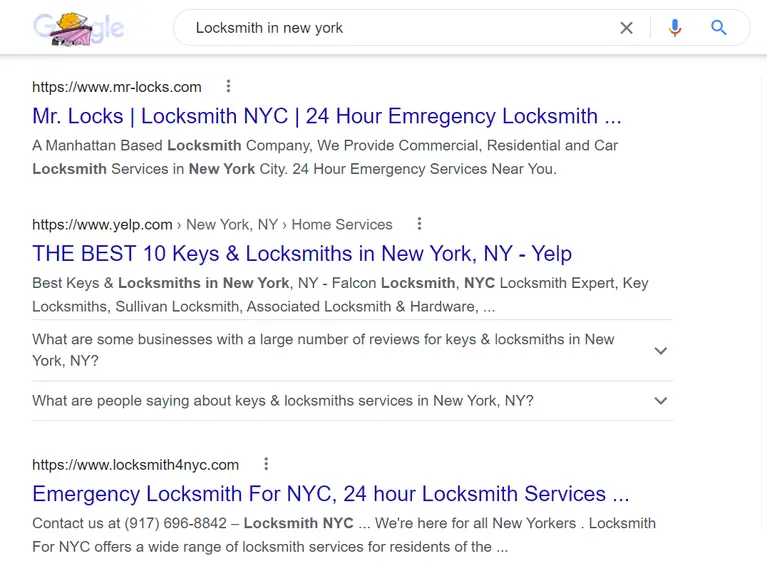
But there's a secret to getting listed in the first few search results pages. What's the secret? It begins with keyword research.
In this article, we will guide you through some valuable tips for keyword research. You'll know which keywords to target and how to find those with high search traffic.
Tips to Gain visitors Using these Local SEO Keyword Research Tips
1. Research About Your Niche
You have to be very clear about the niche before determining what keywords will be helpful for your webpage. After that, you have to do some research about the niche or topic that you're targeting.
It will give you new ideas and new perspectives on your SEO strategies. Also, it enables you to identify the opportunities for SEO in that particular niche — including less visible keywords that have the potential to increase leads and revenue.
Tips And Tools For Research About Your Niche:
- Engage in online forums like Quora, Reddit, and LinkedIn related to your niche to find opportunities. Answer audience queries to help them and mention your brand as their solution non-promotionally.
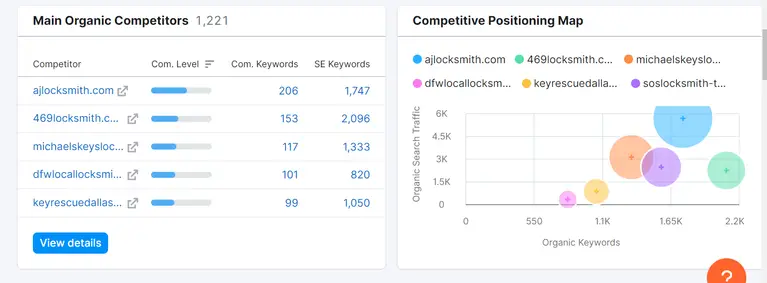
- Choose a niche you love talking about, but make sure it is profitable.
- Start with a concise niche and make it sustainable before moving into the bigger picture.
2. Identify Subtopics Based On Your Niche
Now that you know the niche, it's time to divide your brand's main category into smaller topic buckets based on your target audiences.
After that, create a checklist of all the sub-topics related to the business you want to rank on Google SERP.
Suppose your brand is offering products for men's grooming. You can include sub-topics like Hair Styling Products, Shower Gel, Trimmer, etc.
However, these subcategories should be further split into keywords relevant to those topics.
Tips And Tools To Identify Sub-Topics:
- You can use Ahrefs, Moz, and UberSuggest to search for related keywords for your targeted niche, as shown in the screenshot below; these can be your subtopics.
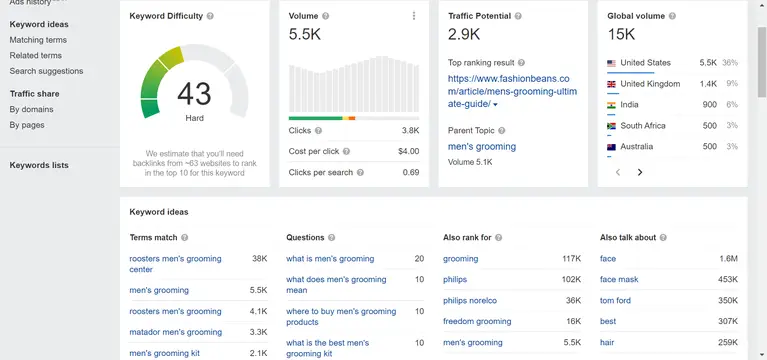
- Make sure your subtopics are relevant to the customer's persona.
- Only focus on the sub-topics that are highly in-demand.
3. Research About Your Business Competitors
Researching the competitors is crucial in local SEO. You can learn about their local SEO marketing strategies and how they are ranking on SERP. It will help you understand the competition for ranking the most accessible or challenging keywords.
Above all, you'll be able to recognize the gap in keyword opportunities. Mixing up all these strategies will enhance the possibility of outplaying your competitors.
Tips And Tools To Research Your Competitors:
- Use SEMrush, Ahrefs, and UberSuggest to research your competitor's website.
See the screenshot below showing competitors of a locksmith site obtained from Semrush.

- Find two significant players in your niche and check their websites about how they use the keywords in the content.
- Use high-volume keywords in your niche that your competitors are ignoring.
4. Create A Seed Keyword List
Seed keywords are often a shorter version of a search term related to your brand's main topics or category with one or two words. These are highly competitive keywords with higher search volumes.
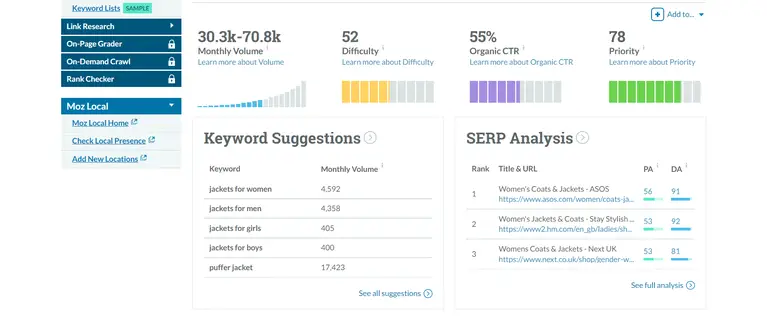
It would be best to list those seed keywords that are highly searched in your locality. Use those keywords relevantly in your high-quality content to attract most of the visitors.
Tips And Tools To Create Seed Keywords List:
- Research the most used terms by your target customers.
- Use Google Related Searches to understand the needs of the audience.
- Use Ahrefs, Keywordtool.io, and Wordstream to search for seed keywords.
5. Discover Long-Tail Keywords
As opposed to seed keywords, long-tail keywords are descriptive search terms. These keywords are often associated with your business subcategories or subtopics.
These keywords are far easier to match your audience's search intent than seed keywords. The competition for these keywords is less, thus, enhancing conversions for your business.
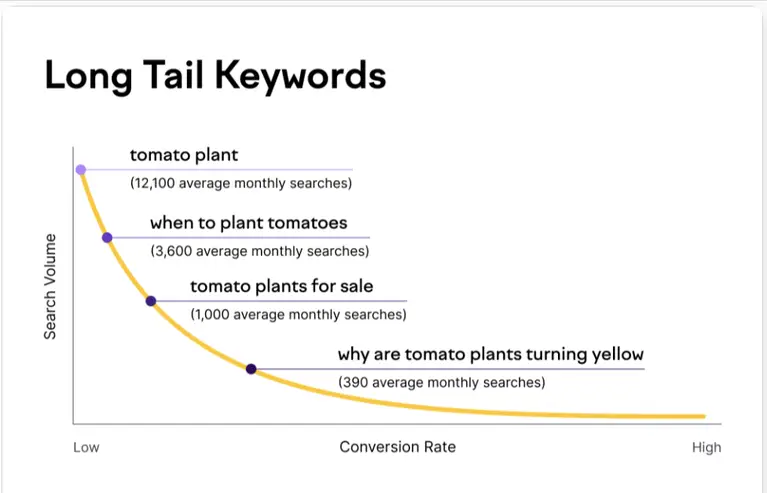
Moreover, long-tail keywords also improve your ranking for seed or short-tail keywords.
Tips And Tools To Discover Long-Tail Keywords
- Use long-tail keywords with a minimum of 6 words and higher search volumes.
- Make sure the long-tail keywords cover your sub-topics as well.
- Use different keyword researching tools to find out the high CPC keywords.
6. Check Keyword Search Intent
The most crucial part of keyword research is understanding the search intent for a keyword.
Getting ranked in Google SERP for a specific keyword will be worthy when you rank for the right keyword to get leads and conversion for your business. It is only possible when you understand the search intent for your keywords.
Tips And Tools to Check Keyword Search Intent:
- Use more keywords with commercial search intent as you sell services and products.
- Examine the SERPs results based on your niche to get the key insight into a researcher's intent.
- Keep checking your website analytics regularly to meet up your customer's intent.
7. Assess The Keywords List
Assessing the keywords timely is a key to ranking higher in local SEO.
After creating a list of keywords based on their metrics, find out which keywords are performing well for your niche concerning time. It’s important to spot and remove those keywords that are not helping and may not even help to rank your content in the future.
Tips And Tools For Assessment Of Keywords:
- Use Ubersuggest, Google Keyword Planner, or Ahrefs to get all the keyword metrics in one place.
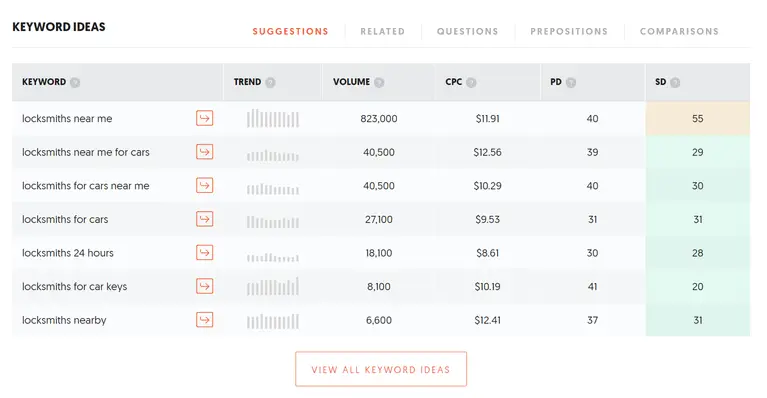
- Always select keywords with SEO difficulty of less than 40 and a search volume of at least 1000.
- Remove keywords or content with poor quality.
- Run keyword campaigns to track improvement results.
Key Takeaways
- Classify the keywords based on their search intent before creating content on services or products.
- Do deep research about your niche before searching for keywords.
- Observe your competitor's website to find out the highly ranked keywords.
- Use location-based keywords the most to attract more local customers.
- Merge both short and long-tail keywords to maximize the impact.
ABOUT THE AUTHOR:
Brice Decker

Brice has been handling marketing projects for more than 12 years and he is providing consulting services on SEO, Social Media and PPC. He has a huge expertise in working at large corporations including Accenture Interactive & PwC Digital Services.
ABOUT THE AUTHOR:
Brice Decker

Brice has been handling marketing projects for more than 12 years and he is providing consulting services on SEO, Social Media and PPC. He has a huge expertise in working at large corporations including Accenture Interactive & PwC Digital Services.
Related Post
How to Rebrand Your Business Without Losing SEO?